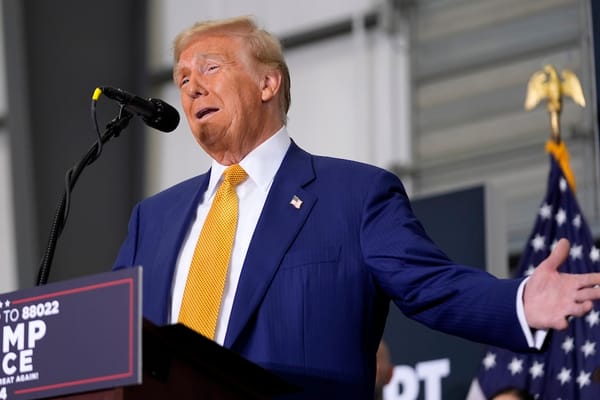Head of Big Tech Lobby Group Says Repealing Section 230 Unconstitutional
CTA CEO said abolishing intermediary liability protections violates private industry protections against government interference.

June 23, 2021— Gary Shapiro, the CEO of the Consumer Technology Association, said at a conference Tuesday that while social media platforms have responsibilities to the public, repealing Section 230 would violate the Constitution’s free-speech protections.
Section 230 of the Communications Decency Act protects social media platforms from legal responsibility for the third-party content posted to their website.
Countering the philosophy that Section 230 should be repealed, Shapiro – whose trade organization represents Facebook, Amazon, Apple, and Microsoft — said at the conference hosted by the Media Institute that doing so would not only destroy the value of these platforms but would blatantly contradict the U.S.’s value of free speech.
Shapiro reasoned that the free speech protected by the Constitution applies specifically to government, not private industry. He said Congress, specifically, cannot interfere with free speech, and that repealing Section 230 would do just that for private companies.
“If Yelp is responsible for user reviews, if Next Door is responsible for a neighbor’s critical comments, or if Facebook is responsible for political comments, not only are we making these services essentially unusable, we are trampling on the free expression values we treasure, that are embodied in our constitution.”
Despite speculation about the future of Section 230, including what Congress will do about proposed amendments to it, Republican party members, including Bob Latta, R-Ohio, have said that they believe Section 230 is here to stay.
Shapiro said that while the government should not get involved in how platforms moderate their content, social media companies still have a responsibility to foster free speech and healthy discourse in the public sphere. He said while moderating content is their constitutionally protected right, banning former President Donald Trump was “over the line” and irresponsible.
Shapiro accused both political parties of wanting to make platforms legally responsible for content posted to their website.
“This is like making hotel owners responsible for guests’ behavior,” he said. “Creating this liability, given the huge amount of posting, would severely crimp the value of these services and lead to an onslaught of opportunistic trial-lawyer lawsuits.”
Big tech and antitrust
During the conference, Shapiro also spoke out against the antitrust bills currently proposed in the House, calling them “weird and dangerous.” He said the bills were rushed through Congress without proper hearings because the bills are politically motivated and have less to do with consumer welfare than they are about retaliating against social media companies.
“As currently drafted, the package of antitrust bills introduced in the House Judiciary Committee would be a disaster for American innovators and consumers,” Shapiro said in a separate press release. “If signed into law, the bills would cause irreparable harm to small businesses and startups and put the U.S. at a competitive disadvantage against China.”
Editor’s Note: The Consumer Technology Association followed up with us to note that Gary Shapiro did not use the world “unconstitutional” in his speech. They did not object to Broadband Breakfast’s reporting that Shapiro said that repealing Section 230 would violate the Constitution’s free-speech protections. Therefore, Broadband Breakfast stands by its original story.






